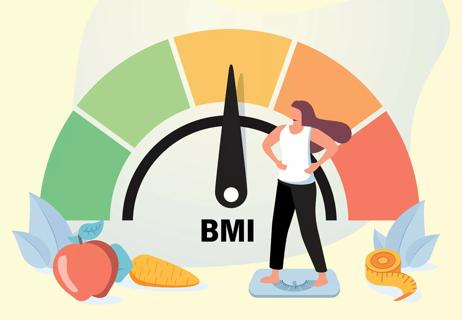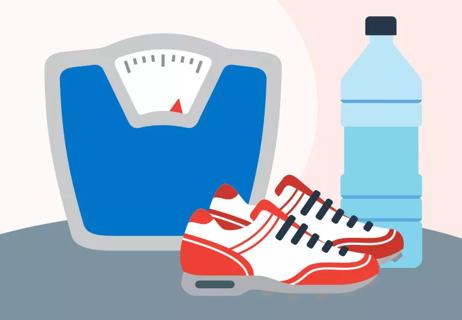The short answer from a family medicine physician

A: BMI stands for body mass index. We take a person’s weight and height and convert that into metric units, and then calculate weight per meter of body surface area – so it’s measured in kilograms per meters squared. This is used as an approximation of body composition, in particular the amount of total body fat.
Advertisement
Cleveland Clinic is a non-profit academic medical center. Advertising on our site helps support our mission. We do not endorse non-Cleveland Clinic products or services. Policy
It’s easy because we can measure your height and your weight and we can calculate this BMI, which standardizes weight across heights for adults. The BMI scale for adults is:
However, BMI is only an estimation of body composition. So there are people who carry a lot of muscle mass whose BMI will be high because they weigh more, and it’s not really a good indication of what their body mass is. But for the vast majority of Americans, it’s a good rough estimate.
There’s an interesting paper that was published in The Lancet in August 2016 that combined the data from 239 clinical trials and found that, in people who never smoke cigarettes, increasing BMI was associated with all causes of mortality. So higher BMI is associated with increased risk for cancer, heart disease and stroke.
But there are other measurements that can help determine whether you’re at a healthy body weight. One that we probably don’t use enough is waist circumference. If you start an exercise program or a diet and you’re losing inches around your midsection, even if the scale doesn’t change a whole lot, that’s still a good sign.
Advertisement
— Family medicine physician Robert Bales, MD, MPH, FAAFP
Advertisement
Learn more about our editorial process.
Advertisement

Kids’ BMI is measured in relation to others their age and sex — a healthy range is between the 5th and 84th percentile

Plus, 4 factors that can make BMI misleading

When — and when not — to trust BMI calculators

From your ideal BMI to when to take it with a grain of salt

Having a BMI in the healthy range doesn’t mean you’re safe from health conditions often associated with obesity

This fitness plan can work as a realistic, holistic approach to a healthier you

Having underweight, having overweight and having obesity can be dangerous for your heart

Having obesity brings long-term health risks no matter your fitness level

Wearing a scarf, adjusting your outdoor activities and following your asthma treatment plan can help limit breathing problems

Your diet in the weeks, days and hours ahead of your race can power you to the finish line

When someone guilt trips you, they’re using emotionally manipulative behavior to try to get you to act a certain way